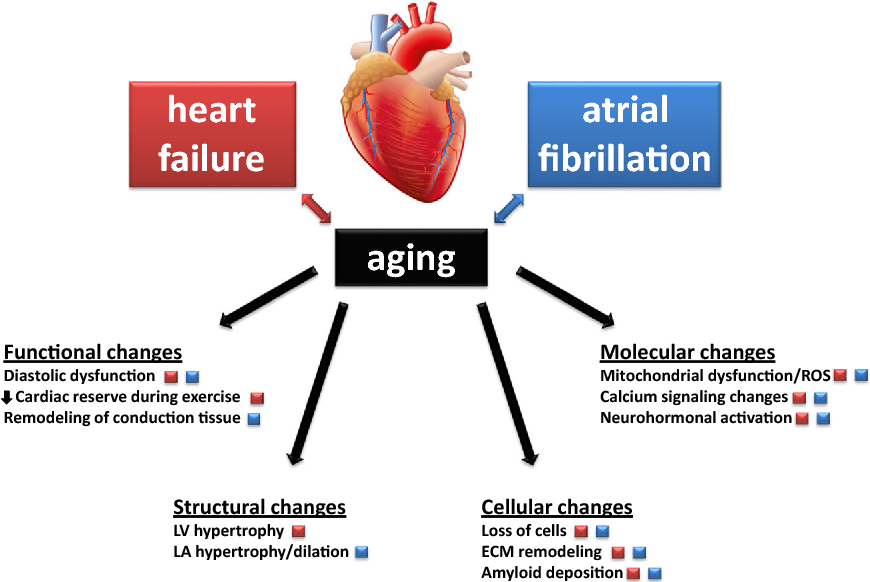Maintaining optimal heart health is crucial for overall well-being, yet the ageing process brings challenges that can compromise cardiac function. Understanding the effects of ageing on heart health is key to mitigating potential risks and preserving vitality. In this blog, we discuss the implications of ageing on heart health and explore strategies to overcome them.
Synopsis
Heart Health
The human heart serves as the very essence of our life, promoting overall well-being and wellness. Nestled safely in our chest, this indispensable organ pumps blood throughout our body and delivers oxygen and nutrients, making it a fascinating biological marvel.
Since the heart is an organ of utmost importance, understanding its relationship with ageing is vital for optimal health. The older we grow, our heart and blood vessels undergo several changes, making us susceptible to heart diseases. These heart diseases are often an accumulation of risk factors from lifestyle changes, family history, and more.
Heart and Age
As we age, the blood vessels can stiffen, blockages can build up, and structural changes to the heart and vessels can happen. The heart and blood vessels start to thicken and lose elasticity from as early as the 2nd to 4th decade of life and depending on the patient's profile the symptoms of heart disease can be evident in the 5th to 7th of decade of life. The changes that happen can increase the likelihood of developing heart attack, stroke, or heart failure, a leading cause of death or disability impacting millions worldwide.
Some of the common changes in the heart with ageing are:
- A slower heart rate due to the deposition of fibrous and fat tissue in the SA node (natural pacemaker) that controls the heartbeat
- Thickening of the heart wall causes the heart to hold less blood and fill slowly
- The heart valves that control the direction of blood thicken and become stiff with age. Therefore, decreasing the heart’s tolerance to exercise and other stressors
- The capillary walls in the heart’s blood vessels can thicken and reduce the exchange of nutrients and waste
- The aorta can become less flexible, thick, and stiff with ageing which may cause the blood pressure to rise and make the heart work harder
Cardiac Disease Development
An ageing individual often becomes less physically active. A combination of reduced physical activity, high blood pressure, and other structural changes cause plaque to build up and clog the arteries, restricting blood flow. Concurrently, large arteries supplying blood to and from the heart stiffen and develop plaque, restricting blood flow to heart muscles. This causes high blood pressure and forces the heart to work harder to move the blood throughout the body.
As the pumping load on the heart increases, heart chambers thicken, reducing their ability to store or pump blood. Over time, the heart’s muscles weaken and become damaged if not cared for. Some older individuals have also reported arrhythmias and an increase in heart size.
How to Prevent Heart Problems
Exercise and physical activity are the first line of treatment to optimise your heart health. The exertion from exercises forces the heart to pump more blood towards the muscles and lungs. This relaxes the blood vessels and makes the heart efficient in the long run. Indulging in at least 15 to 30 minutes of physical activity daily, which includes running, walking, cycling, or dancing, can help restore your heart health. Additionally, consuming a heart-healthy diet, avoiding smoking and alcohol, and regularly checking blood pressure levels can prevent the weakening of the heart and promote healthy well-being.
Identifying the High-risk in a Patient
Patients having a family history of heart disease, brain stroke, diabetes, or sudden cardiac death are at high risk. Also, young diabetic patients, people with very aggressive lifestyles (type A personality), heavy smokers, excessive obesity, and bad food habits are at high risk of developing cardiac illness. A sedentary lifestyle style adds to the risk magnitude.
Staying active, consuming a heart-healthy diet, and regular health checks are vital to maintain cardiovascular health as you age. It is never too late to help your heart. We at Manipal Hospitals provide comprehensive screening by expert cardiologists and lifestyle modification measures to mitigate the development of cardiovascular disorders linked to ageing.
FAQ's
Healthy adults must get their blood pressure screened starting at 30 to 40 years with an interval of every two years. Cholesterol is screened every five years. Starting at 45 years blood glucose levels can be monitored.
- Chest pain or heaviness of chest radiating to the inner part of left arm or jaws or neck (developing with exertion, normal activity or at rest)
- Breathing difficulties with exertion or normal activities
- Palpitations
- Fatigue with normal day-to-day activities
- Sudden loss of consciousness
All these signs could indicate an underlying heart disease prompting medical attention.
If heart disease is not treated, it can cause severe angina, heart failure, and shortness of breath with mild activities. This can irreversibly damage the heart ultimately leading to death.
Exercise is known to reduce blood pressure and good cholesterol. It also relaxes the blood vessels of the heart and throughout the body. Therefore, graded and supervised exercise makes the individual less likely to develop a heart attack. Even if they have a heart attack, it can be less severe.
To schedule an appointment at Manipal Hospitals, contact our cardiology department or visit our website.






















 4 Min Read
4 Min Read





















